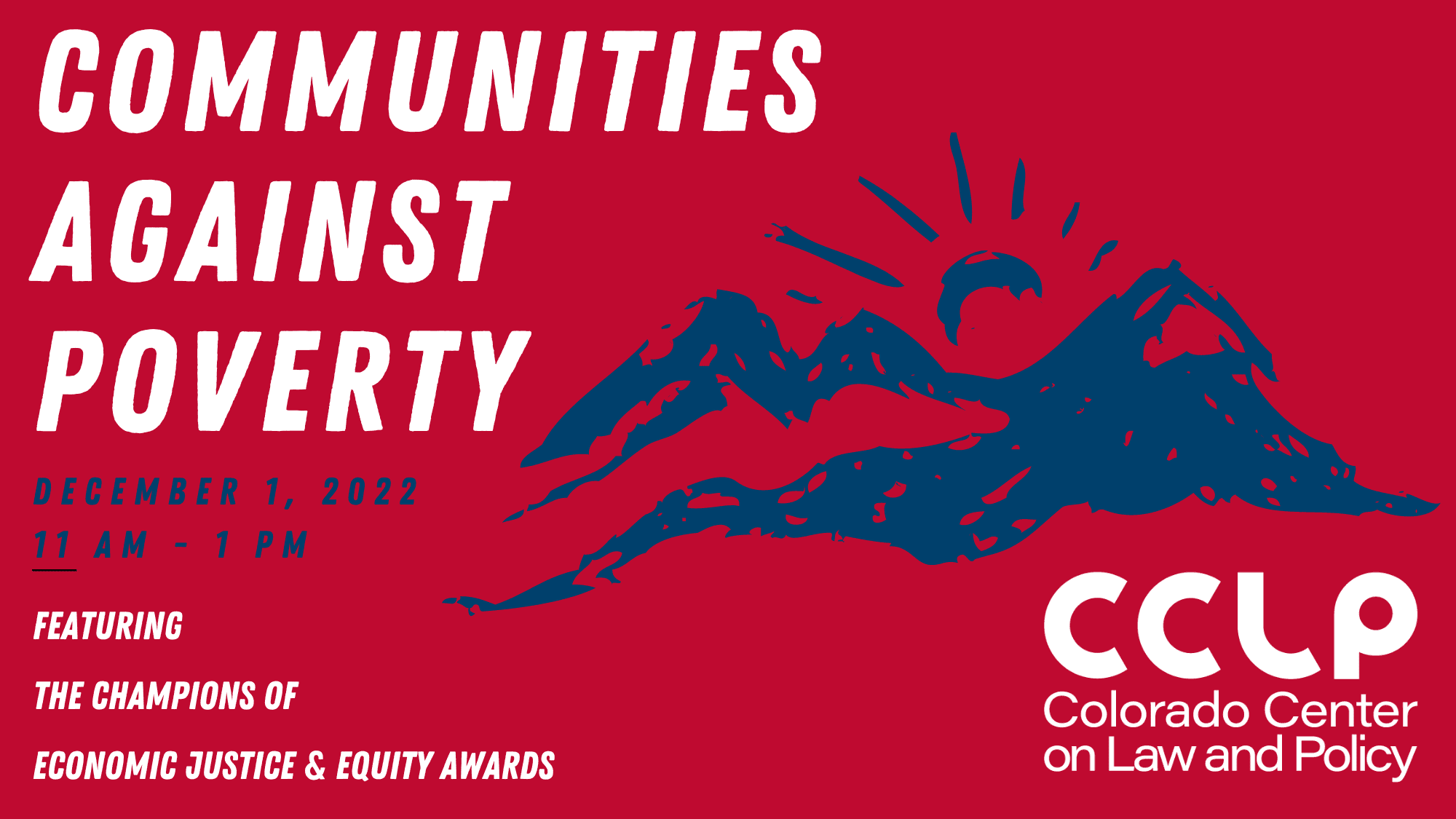On December 1, 2022, join Colorado Center on Law and Policy for our signature annual fall event, Communities Against Poverty. This year’s celebration of the anti-poverty movement in Colorado will feature a Keynote speech by Dr. Fred Wherry, Princeton sociology professor and Director of the Dignity and Debt Network. He will joined by CCLP visiting scholar Dr. Lois Lupica of the University of Denver. Participants will be able ask live questions of the keynote speakers as in years past. Once again this event will also serve as the award ceremony for the 2022 Champion of Economic Justice & Equity Awards, given out annually to the stand-out community organizers, partner organizations, legislators and individuals who made a difference in the lives of Coloradans over the past year.
Due to the pandemic, this event will once again be conducted virtually over Zoom.
Sponsors for Communities Against Poverty 2022
Presenting Sponsor: Aloha Foundation

Premier Sponsor: Colorado Access
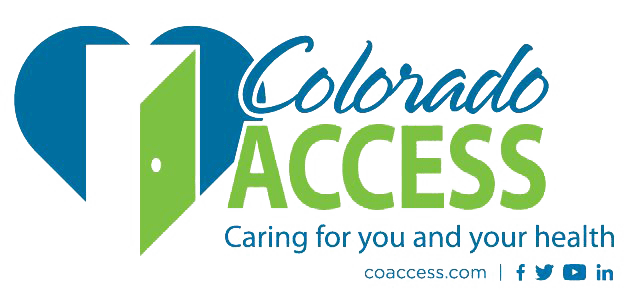
Supporting Sponsor: Colorado Coalition for the Homeless
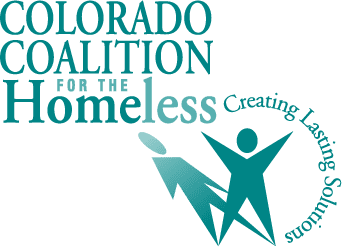
Community Sponsor: Colorado Consumer Health Initiative

Our speakers
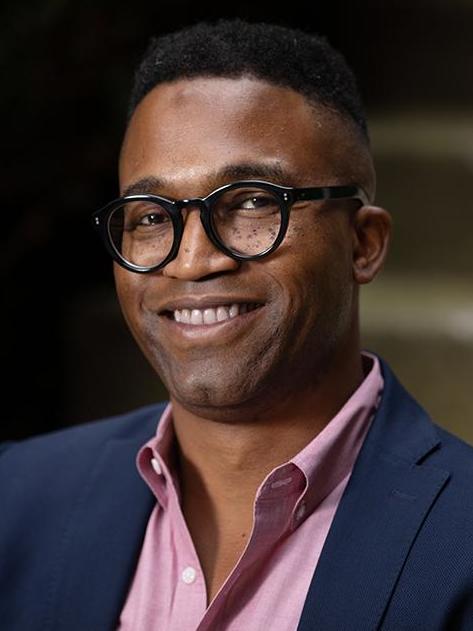
Keynote Speaker
Dr. Frederick Wherry
Frederick “Fred” Wherry is currently the Townsend Martin, Class of 1917 Professor of Sociology and an associated faculty member of African-American Studies at Princeton University. He is also the Vice-Dean for Diversity and Inclusion in the Office of the Dean of Faculty.
Dr. Wherry’s abiding concerns with economic justice led him to found the Dignity + Debt Network (a partnership between Princeton and the Social Science Research Council: dignityanddebt.org) as well as the Debt Collection Lab (debtcollectionlab.org). He is author, editor, or co-editor of nine books, including Credit Where It’s Due: Rethinking Financial Citizenship (with Kristin Seefeldt and Anthony Alvarez), The Oxford Handbook of Consumption (with Ian Woodward), Money Talks (with Nina Bandelj and Viviana Zelizer), and Measuring Culture (with John Mohr, Chris Bail, and others). He has served in advisory roles at the Boston Federal Reserve, the Aspen Institute’s Financial Security Program, and the Mission Asset Fund, and is the 2022-2023 president of the Eastern Sociological Society and was the 2018 president of the Social Science History Association. In 2022 he was appointed to the Wealth Disparity Task Force by Governor Murphy. At Stanford University Press, he co-edits the book series Culture and Economic Life. He is currently writing a book about debt relief.
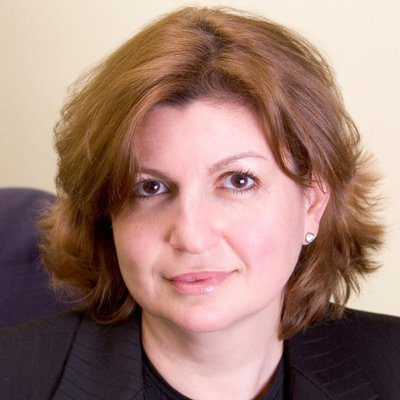
Featured Speaker
Lois Lupica, J.D.
Lois R. Lupica is the Director of the Law + Innovation Lab at the University of Denver Sturm College of Law, and the Maine Law Foundation Professor of Law, Emerita at the University of Maine School of Law.
In 2019 she received a Fulbright Senior Scholar Award where she researched access to justice and technology at the University of Melbourne in Melbourne, Australia. Professor Lupica is an Affiliated Faculty member of the Harvard Law School Access to Justice Lab, Co-Principal Investigator of the Financial Distress Research Study, and Co-Principal Investigator of the Princeton Debt Lab. She has published articles on a variety of topics including access to justice, bankruptcy, consumer finance, securitization, property and contract theory, intellectual property in commerce, secured transactions, legal ethics, as well as a leading Casebook on Bankruptcy Law & Practice. She is also a member of Sync Gallery in Denver, Colorado where she shows her Cold Wax and Encaustic paintings.
Champions of Economic Justice and Equality Awards
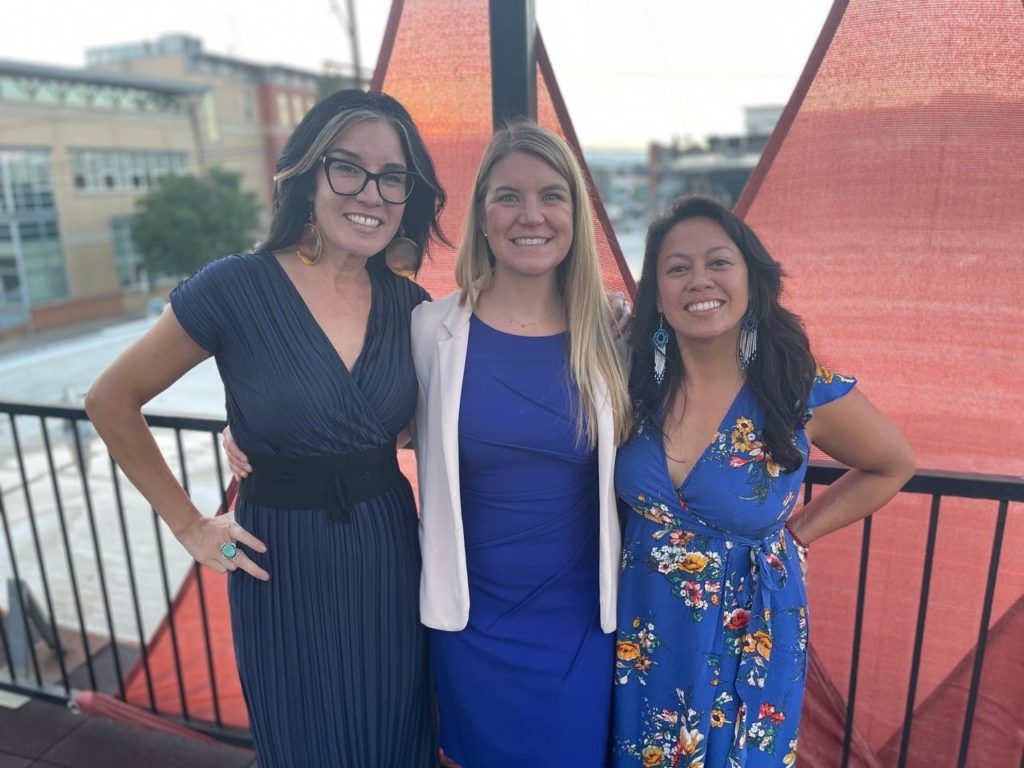
Expunge Colorado
2022 Community Partner Organization of the Year
Expunge Colorado is this year’s Community Partner Organization of the Year. A criminal record has devastating lifelong consequences that can affect families for multiple generations. Expunge Colorado exists to provide education, training, consultation, and pro bono legal services for the record sealing of eligible criminal cases in Colorado. The organization is women/BIPOC-led and founded by three women who have organized annual record-sealing events since 2018. In addition to offering free, community record-sealing events to support individuals through the complex legal process, Expunge Colorado recruits and trains legal professionals, works with partner organizations to provide wrap-around services, generates community education around record sealing, and participates in legislation and measures that automate record sealing and expand eligibility. Since its inception, Expunge Colorado has reviewed over 500 records, sealed approximately 100 charges (and counting) from public view, trained 80 lawyers/law students, partnered with 20+ partner organizations, and helped craft language for the recently passed Clean Slate Legislation.
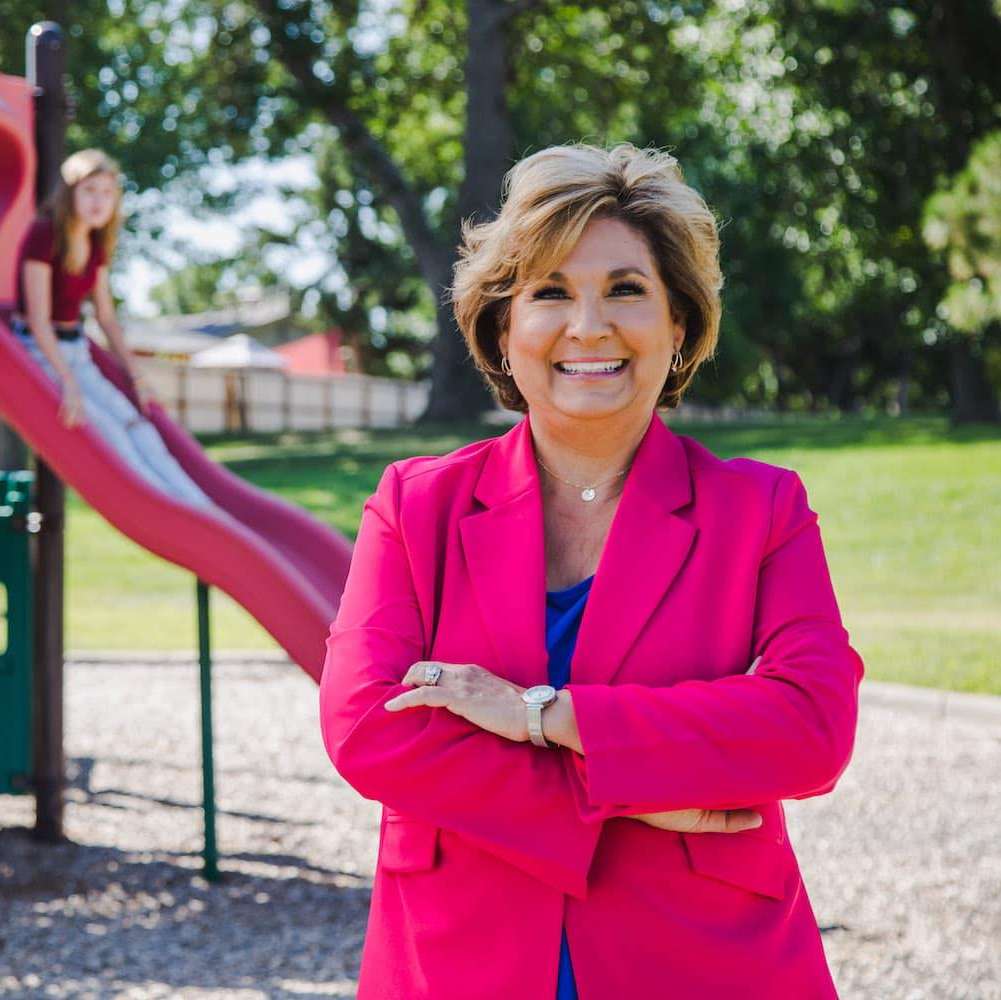
Representative Monica Duran
2022 Legislator of the Year
Representative Monica Duran is this year’s Legislator of the Year.
Representative Monica Duran serves as the representative for Colorado’s House District 24 (soon to be District 23) and as the newly-elected Colorado House majority leader. Since being elected to the House of Representatives in 2018, she has been a champion of working families and survivors of domestic violence. She led legislation to improve wages for home care workers, maintain sibling relationships between foster youth, protect consumers, support small businesses, and address the problem of affordable housing.
As a young child, Rep. Duran learned how to fight back against injustice, as she watched her mother and siblings march alongside Cesar Chavez and Dolores Huerta fighting for better working conditions, fair wages, and the right to unionize. As a young adult she faced very personal challenges of her own. As a domestic violence survivor and a once homeless single mom of a young son, she drew on the strength her mother taught her, fighting against stigma and breaking the cycle of abuse so that her young son would grow up to respect and honor women.
Rep. Duran has long been invested in helping vulnerable members of our community and improving the quality of life for all Coloradans. In 2015, she was a leader of the campaign for Wheat Ridge Issue 300. She served on the Wheat Ridge City Council and as Director of the Wheat Ridge Fire Protection Board. Her work in the community also includes serving as a board member of the Jefferson Center for Mental Health, the Wheat Ridge Planning Commission, and a proud member of the Jefferson County Democratic Latino Initiative (JDLI).
She currently serves on two committees at the State Capitol: Business Affairs & Labor and Appropriations. Prior to being elected House majority leader she served as majority co-whip. She is a member of the Colorado Democratic Latino Caucus, Co-Chair the Democratic Women’s Caucus, the Colorado Legislative Animal Welfare (CLAW) Caucus, and the Children’s Caucus. She is an appointee on the Colorado Workforce Development Council, and the Cancer, Cardiovascular, and Pulmonary Disease Grant Program Review Committee (CCPD Review Committee for short). She is also a PorchLight Family Justice Center Board Member and Tri-Chair of the Vaccine Equity Taskforce.
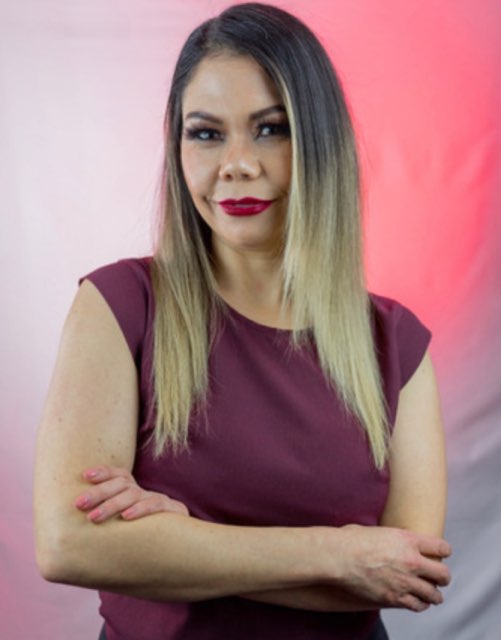
Alma Vidauri
2022 Community Advocate of the Year
Alma Vidauri is this year’s Community Advocate of the Year. Alma Vidauri is a hardworking mother of 3 kids and has lived in the Colorado mountains for 25 years. As a mother, she cares deeply about the health and well-being of her children and has taken steps to ensure they have adequate healthcare over the years. The simple decision to seek health coverage created years of legal battles that ultimately landed in the Colorado Supreme Court. After the Court issued an unjust opinion, Alma courageously used her story at the capitol to fight for statutory change. Now, she uses her story for good through motivational speaking and meeting with other women in similar situations. She teaches courses and speaks at conferences about emotional intelligence, inner healing, and self-esteem and empowerment. One of the things she is most passionate about sharing is what she has learned through the years with other women in the Hispanic community.
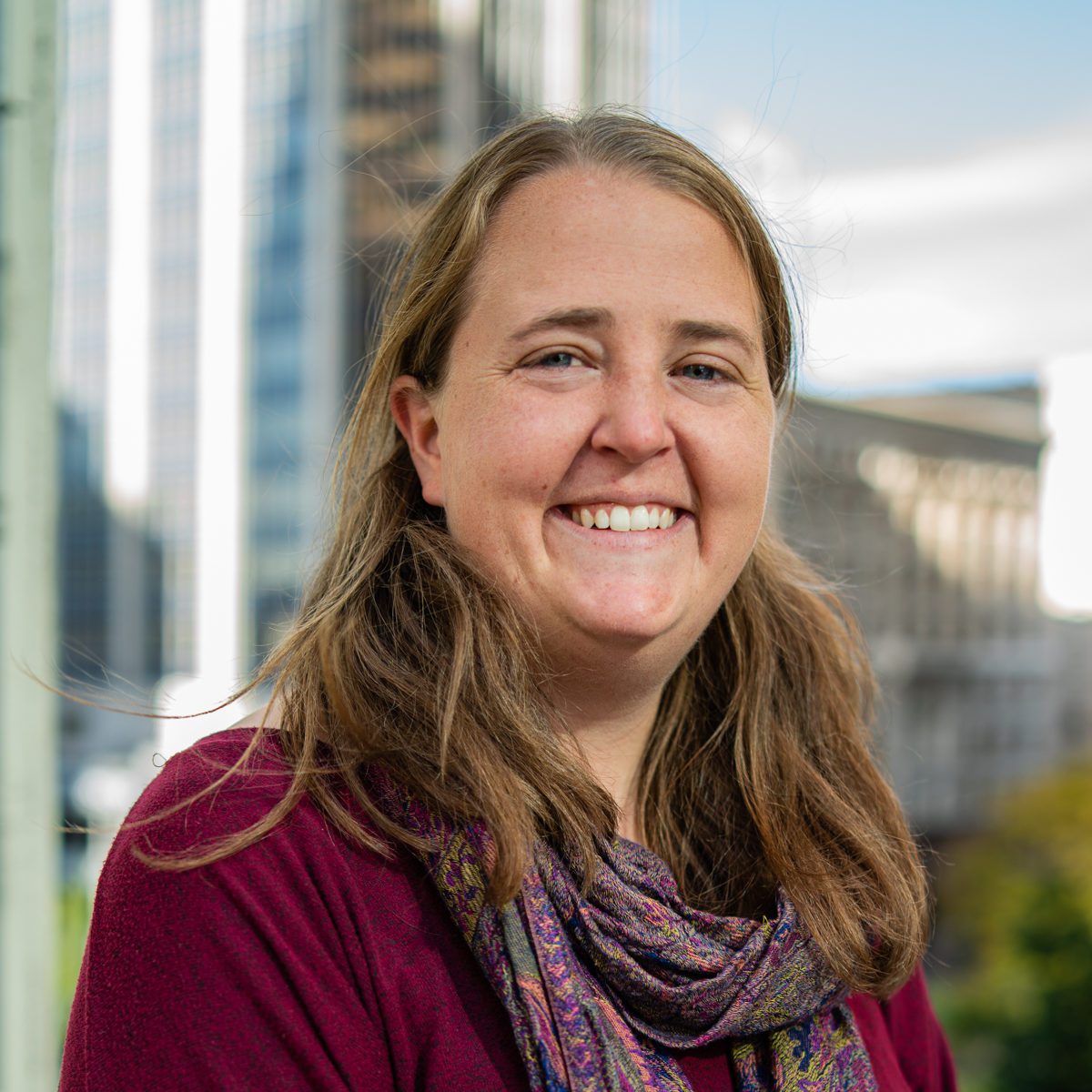
Katherine Keegan
2022 Governmental Partner of the Year
Katherine Keegan is this year’s Governmental Partner of the Year. Ms. Keegan serves as the Director of the Office of the Future of Work (OFOW) at the Colorado Department of Labor and Employment (CDLE). OFOW was established in 2019 through an executive order by Governor Polis. It began with a broad mandate to understand and raise awareness of the future of work trends in Colorado, and to identify policy and program solutions. The OFOW conducts research, shares best practices, advises legislators and other partners, and provides training on the future of work. The OFOW leads two statewide initiatives: the State Apprenticeship Agency and the Digital Equity, Literacy, and Inclusion Initiative.
In July 2020, the OFOW partnered with Colorado Center on Law and Policy (CCLP) to develop a Digital Equity Competency Framework that would inform policy recommendations and strategies to assess and address digital inequities in the state. The framework provides reference points for key steps individuals and systems can take towards digital equity. In 2021, the OFOW partnered with CCLP and the Skills to Compete Coalition to perform community engagement interviews with diverse populations and communities across the state. Information obtained from these interviews will be used to inform and authenticate the state digital equity plan and a digital inclusion scorecard that are being led and drafted by the Office of the Future of Work and Office of eHealth Innovation.
Ms. Keegan and OFOW successfully embedded digital inclusion into stimulus proposals and implementation including securing ARPA funding for a Digital Equity Manager, informed the creation of a statewide Digital Navigator pilot program as part of SB22-140, and launched a Digital Literacy and Inclusion website to house updates on efforts related to Digital Literacy and inclusion. Under her leadership, OFOW partnered with Mile High United Way 2-1-1 to audit and update all the digital literacy and inclusion materials. OFOW has also published a technical assistance module with the Colorado Workforce Development Council (CWDC), a Digital Literacy and Inclusion report, and a Digital Skill Catalog, a living document which logs and categorizes 244 digital literacy competencies required for daily life, learning, and the future of work. They have also partnered with the Colorado Universities Innovation Council’s LINKED program (CUIC) to explore the creation of a statewide Digital Equity Office.






